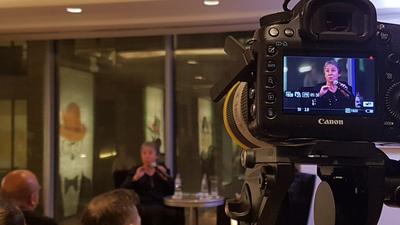In a country struggling to cope with poverty, unemployment and financial disparity, refugees and migrants have become “invisible” for the biggest part of the Greek society.
They are extremely vulnerable and have to face extreme poverty apart from being exposed to racist attacks by nationalist far right entities like the Golden Dawn party.
Thousands of refugees and migrants have been arrested and imprisoned in detention centres where living conditions are appalling and there are serious gaps in the provision of medical care.
Nasrin, from Syria, is 23-years-old. She shared her story with us on Lesvos island during the spring of 2013.
Nasrin's story
In our city it was slowly getting more dangerous on the roads, there was a lot of stealing and looting. A lot of violence against women as well, I have seen women leave for the market and never returning. There was no safety. People fled to our city, with only the clothes on their back, they slept in closed schools. We helped them.
Everyone had to choose sides, but if you were against the freedom fighters they would kill you, if you were against the army, they would kill you.
Time to leave
When one of the gangs kidnapped a child, we decided it was time to leave. The last thing I wanted was to leave, our lives were good before. Lots of trouble, there was no food anymore in the city, no bread, no electricity, no gas. The prices were getting so high. The bombs were getting so close to the house, we moved and we had lots of fear.
It’s difficult to remember when we left. It was so cold, we couldn’t get warm. We drank alcohol, which we don’t do, just to keep warm. Our baby had to go three weeks without a bath; there was no water on the road. We knocked on doors to sleep along the road. There was lots of trouble everywhere.
We stayed long in Turkey, we slowed down in a village, close to Urfa for three and half months where we rented a house and talked to someone about bringing us to Greece. There were lots of times we needed medical aid, but we didn’t speak Turkish. We gave money once, but received no help. Once we went to a medical doctor and he gave us a medicine without even performing a check-up. Nevertheless it helped.
Lost at sea
We took the bus from Turkey to where the boat was, it took eight hours. They said the boat was large, big enough for all our belongings. Lots of lies they told us, there were lots of people, about 65. About ten minutes into the sea, the boat seemed too heavy with the entire luggage and the boat returned. We waited, as the smuggler told us ‘only women & children’ but we wanted to stay together.
The guy who steered the boat didn’t know how to do so at all. The baby was all wet, our boy said he wanted to go back, he was so afraid, but the smuggler said it was only one hour away. It was more than an hour, we were completely wet. It took more than one and a half hours before the police came. Then, someone cut the rubber boat with a knife. We were in the water.
When we arrived onshore they gave us blankets, we all went to the hospital right away. We were asked who wanted a doctor. Then we went to the rooms. Here it is ok, there is a doctor, they brought us nappies for the baby.
We lost our money in the sea, our passports. We are now thinking of going to Sweden to work there. I want a place to stay. I want to find a solution for people not having to come through the sea. What we’ve seen, we want no one to see.
Find out more about MSF's work in Greece and our work with refugees




